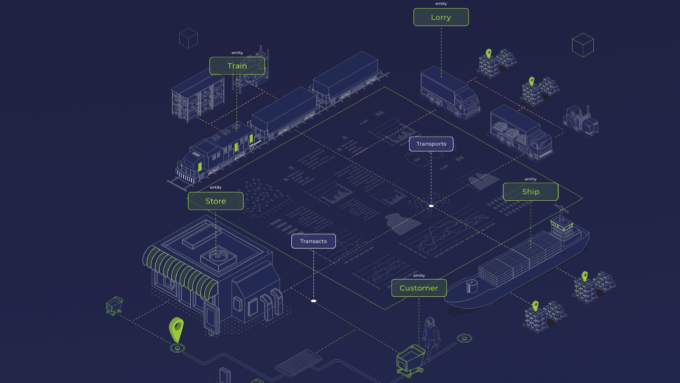As many of you will know, the DT Hub sits within the NDTp and provides a forum for testing and a community for learning and progressing digital twins. In this note I’ve invited @Peter El Hajj, the Head of Delivery for the National Digital Twin programme (NDTp) to give members of the Hub an update from the programme. I’ve asked Peter to tell us a little about himself and to give us a whistle-stop tour of the NDTp; how it got started, what’s happened so far and its plans for the coming year and beyond.
Sam: We met shortly after the Data for the Public Good report was published and you were a member of the resulting Digital Framework Task Group (DFTG) – what has happened since then?
Peter: Rather a lot has happened since then. At the time I worked in infrastructure finance and digital ventures at Mott MacDonald. I then joined the DFTG to develop the roadmap towards a national digital twin. Since then we have established the delivery vehicle for the national digital twin programme consisting of the three core streams: DTHub, Commons and Change. Each step has been exciting and enriching and it’s only the beginning of the journey.
Sam: These are exciting times for the NDTp, what motivated you to join as Head of Delivery and what do you see is on the horizon for the programme?
Peter: The NDTp’s vision is to improve the lives of people by bettering the performance of infrastructure. This is achieved through effective and secure sharing of data and information across sectors and organisations. I personally find these ambitions meaningful and the opportunity to contribute to their success highly motivating. In the long term I see the national digital twin changing the way we plan and manage infrastructure.
Sam: What would you say are some of the milestones the NDTp is most proud of?
Peter: There have been quite a few but if I were to pick the top they would be the publishing of the Gemini Principles – the conscience of the entire programme, of course the launch of the Digital Twin Hub, hosting the inaugural National Digital Twin Day and publication of the Flourishing Systems report and the Pathway towards an IMF. The old saying of ‘start as you mean to continue’ really rings true with these pieces – they form the foundations of the programme.
Sam: In terms of the DT Hub, what do you think is the greatest way in which the Hub and its members can contribute to the NDTp?
Peter: I would say keep doing what you’re doing. Keep building digital twins, keep sharing your experiences; successes and challenges. As with many initiatives, there will be those who are not yet ready to make the leap but equally there are always those who see the vision and the DT Hub is the pioneering community collectively pushing forward and paving the way for others.
Sam: There are many within the DT Hub who are already active across the NDTp but for those who may not be aware or are interested in finding out what else is happening across the programme and how they may get involved, can you share some highlights across the programme and perhaps how our members can get involved?
Peter: Sure, here’s the newest and latest from around the programme:
- New team member: we are delighted to have @HenryFT join the team as DTHub Community Manager.
- DFTG meeting: The DFTG meets every two months to provide comments, challenges and direction for the NDTp. Our last meeting was two weeks ago and I’m happy to report that members’ comments were positive and supportive for our core three streams: Commons led by @James Harris , DTHub led by @Samuel A Chorlton and Change led by @Sarah Hayes. The DFTG, chaired by @Mark Enzer; is the advisory board for the NDTp. Its members represent asset owners and operators, institutions, universities, government, regulators, supply chain, legal firms, consultancies and tech providers.
- FDM Seed: The Foundation Data Model (FDM) Seed team led by @Matthew West is making good progress on the technical core of the IMF. The product of their hard work have been captured in key documents soon to be published on the IMF Community Network here on the DTHub with the help of @Zane Ulhaq. These documents are the Top-Level Ontologies (TLO) paper, the Industry Data Models survey paper and the TLO recommendation paper. Join the network to take part in the fascinating discussions taking place.
- Open consultation on the IMF: The open consultation on “the pathway towards an IMF” concluded at the end of August and we have received 24 responses which are now in the process of being reviewed. @Miranda Sharp is leading the next phase of engagement to refine the proposed approach and ensure we remain faithful to the pathway towards an IMF which is a priority for the programme.
- Gemini Call: A new call has been started to provide weekly updates from the programme to supporters of the programme last week. The call takes place every Tuesday 10:30 to 11:00 hosted by @Simon Evans. The Gemini Call is part of the Gemini Programme – an NDTp collaboration initiative. The first Gemini project is the DT Toolkit which includes a collection of digital twin case studies, use cases, a business case template and implementation roadmap for digital twins. This project is a collaboration with KPMG, Frazer-Nash, PA Consulting and Dassault Systèmes. If you are interested in joining the call please reach out to ndtprogramme@cdbb.cam.ac.uk
- Skills to implement the IMF: A new tender opportunity was published last week on the CDBB website. This tender is looking to grow awareness of the roles and skills required for implementing the IMF. This includes the development of a capability framework, gap analysis and priority list of roles and skills for early action. The IMF aims to enable effective information management across the built environment and is the basis for a national digital twin.
The NDTp is a socio-technical change programme. It aims to enable an integrated digital built environment to improve the performance of infrastructure and improve the lives of people. We run an open and collaborative programme and always welcome contributions and ideas.
Peter will be providing regular updates on the NDTp and how you can get involved. To find out more about any of the activities and how to get involved reach out to ndtprogramme@cdbb.cam.ac.uk.



Leave a comment